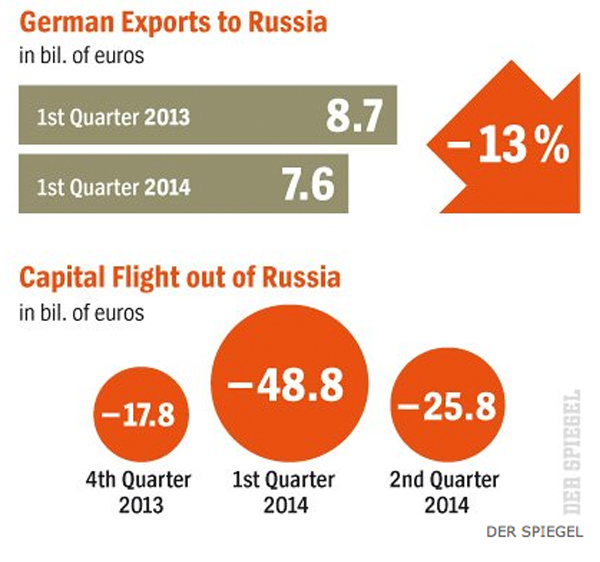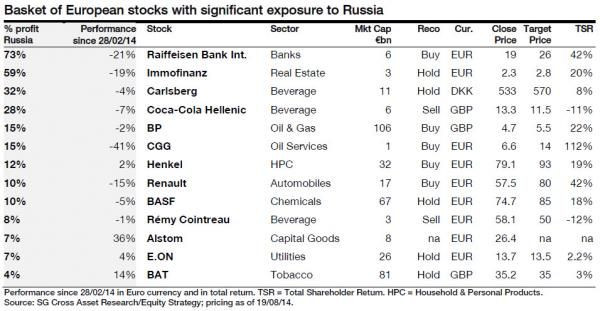German Economy 2014: GDP Stumbles On Lower Sentiment Surrounding Ukraine Crisis

Germany’s economy has faltered recently, partly owing to geopolitical tensions with Russia over the Ukraine crisis, though the fundamentals of the eurozone’s biggest muscle remain strong. Falling trade and investment have dragged down GDP recently. A mild winter allowed more construction and thus more growth than usual in the first quarter, which deepened the gap between the quarters. More holidays than usual from April to June have also distorted the second-quarter figure a bit.
“You probably don’t want to overexaggerate the impacts on the German economy,” said Sarah Hewin from London, a global research analyst for the bank Standard Chartered. “Certainly, up to recently, the jobs market has been strong, one of the factors supporting growth in the economy. Jobs growth, immigration, real wage increases, these are all contributing to better household incomes.”
Still, the Ukraine crisis and resulting Western sanctions against Russia—sanctions German officials have tried to avoid with negotiations—has had “a direct impact in terms of reduced exports to Russia and an indirect impact in hit to business sentiment,” she said.

German optimism about the development of the economy has fallen to the lowest since 2012, according to the ZEW index. And eurozone economic sentiment has hit an eight-month low, according to a survey by the European Commission. Consumer confidence has declined across Europe too, as people are more worried about the general state of the economy, their households’ financial prospects and finding and keeping long-term employment.
“The fall in economic confidence in Europe in August, particularly among industry and consumers, is not a surprise following the disappointing second-quarter growth figures and the geopolitical tensions that have marked this summer,” Jyrki Katainen, former Finnish prime minister and current EC commissioner, told Reuters.
According to German government statistics, the country’s exports to Russia fell 15 percent from January to May, as tensions between Russia and the West escalated and Europe imposed various sanctions on Moscow, compared to the same period last year. The country’s main exports are machinery, cars and chemical products, but cars, including truck trailers and semi-trailers, declined the most.

Part of the decline in trade can be attributed to uncertainty and anticipation of sanctions, but German trade with Russia has been declining significantly since May 2013. From 2012 to 2013, German exports to Russia fell more than 5 percent, according to the Institute of International and European Affairs. Most German companies that export significant values in product trade about twice as much with China and growing Asian markets as with Russia.
At the close of German markets Thursday, Germany’s DAX stock index had fallen 1.1 percent over the day.
© Copyright IBTimes 2024. All rights reserved.






















